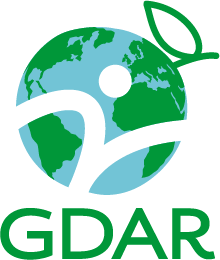The first stage of GDAR Network was funded by the NIHR Global Health Research initiative from 2017-2021. Our goal in that period has been to lay the foundations for a well-functioning Network, and innovative research in diet and physical activities in low and middle income settings.
The priorities for research were set jointly with our partners and informed by consultation with their stakeholders. Leadership for different aspects of the research, and activities to build capacity, have been shared according to expertise across the whole network.
Areas of research
The Work Packages in the GDAR portfolio, 2017-21 were:
Evidence synthesis and modelling
- Evidence review and synthesis. Identifying and reviewing published and grey literature from Africa and the Caribbean to investigate the determinants of diet and physical activity in low and middle income country (LMICs).
- Health impact modelling. Exploring data for the modelling within each of the partners’ settings, and estimating the health impacts of current travel patterns, and of potential changes in those impacts if travel patterns were changed.
Policy analysis
- Mapping the policy environments and processes relevant to the determinants of NCDs across African and Caribbean settings.
The food and built environment
- Levers of diet and physical activity in adolescents. Identifying a system of factors that can be used to improve health outcomes among young people – in Cape Town, Soweto, Yaoundé and Kingston.
- Assessing the use of a food environment audit tool in and around high schools. Using “citizen science” approaches and researcher-led data collection to capture the objective and lived environments that influence diets.
- Time use and travel behaviours during COVID-19 pandemic in Kisumu & Yaoundé. Understanding travel behaviour patterns, attitudinal changes, barriers to active travel and burden of road traffic injuries – in Kisumu and Yaoundé.
- Caribbean Foodscapes: Port-au-Prince Pilot Study. Exploring how historical changes in foodscapes in Port au Prince relate to changes in the burdens of malnutrition and their basis for new policy relevant research questions.
Interventions and evaluations
- Co-designing intervention options for food and built environments near schools. Developing intervention options in food and built environments in and around schools to support healthy eating and active living in young people in Yaoundé, Cape Town and Johannesburg.
- An assessment of the food environment in primary schools in Gauteng following a voluntary pledge by a large beverage company to remove their products and advertising from the schools.
- Hypermarket, foodscape and health. A natural experimental evaluation of the impacts of a new hypermarket in Kisumu, Kenya, on food shopping practices, dietary behaviours, physical activity patterns and nutritional status in local residents.
